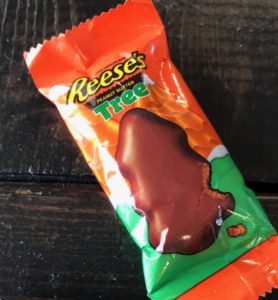“Keep you coming back for more”
This damn holiday Peloton commercial. I don’t want to talk about it because I’m sick of it, but I also feel there’s a side to it that hasn’t been properly addressed that needs to be.
If you haven’t seen it…I don’t think that’s even possible. It’s on all the time. It’s all over the internet. It’s brought more exposure to Peloton and the actress in the commercial, Monica Ruiz, than either probably imagined.
I’m not here to argue about the quality or message of this commercial, especially at this point. The topic has been hashed and rehashed enough. From what I’ve seen, I believe 95% of people are fine with, even supportive of it, it’s the remaining 5% who are offended by it.
And all the chatter is not because the outraged 5% are louder. It’s because, for as many people who believe the commercial is offensive, for promoting everything “a controlling husband” to “a skinny woman who doesn’t need to work out,” there are five times as many people who are defending it.
That’s where the real noise is coming from this debate – people trying to bring the haters back to reality and share the positivity of the message, the reality of fitness and wellness.

Thick thighs. A belly. Big butt. Say it with me – thin doesn’t equal healthy.
And that’s what I want to talk about, the message that’s trying to shine through the dark clouds. Actually, there are two messages that really stand out to me because I believe they’re still widely-held misconceptions about wellness, plus one additional lesson that applies beyond wellness.
So here’s what we can learn from Peloton, in general, and the controversial Peloton Christmas commercial.
Lesson #1
Thin does not equal healthy.
Let me repeat that for those in the back who didn’t hear it: Just because a person is thin, does not mean they are healthy.
Part of the outrage over this commercial is that the actress (remember, people, she’s an actress. It’s a commercial. This isn’t real life) is thin. So, the critics believe that this could be a harmful message…because, in the minds of those who don’t get it, people only work out to lose weight.
A thin person may not be healthy; flip side, a “not-thin” person may be extremely healthy. In case I haven’t said it enough or there’s more to this topic one needs to read to understand, here’s another example, highlighting the fit, healthy bodies of professional athletes.
There’s really no further explanation needed to this key lesson everyone can take away – but, just in case it’s still not clear, I’ll use a different word to make sure everyone understands: skinny does not equal healthy.
Okay then, moving on.
Lesson #2
Fitness is not the only aspect to wellness.
I think this is the bigger takeaway here. Sure, fitness is probably the first thing most of us think about when we think of wellness. But there’s so much more to having a fit lifestyle that translates to overall wellness.
Building on the outrage of lesson #1, there’s so much more to working out than weight management. The story I believe Peloton was trying to portray with the commercial is a person who gained confidence, perhaps cardiovascular health, maybe even stress management, by adding exercise to her life.
So let’s explore some of the other aspects of wellness that come from exercise that have nothing to do with weight loss – because, in case you forgot, a thin person is not always a healthy person. Making sure that’s clear. Just in case, here’s another example, using Nike’s plus-size mannequin to illustrate the point.
First, and most importantly, stress management. Holy shit are we, Americans in general, stressed. People have all sorts of unhealthy ways they deal with stress like un-mindful (I may have just invented that word) overeating, smoking, drinking too much alcohol and sugary caffeinated beverages, and taking copious amounts of medication.

Food is fuel – and sometimes, that fuel is chocolate and peanut butter.
Exercise, I believe, is the best medicine. It honestly changes the makeup of the brain, happiness, focus, perspective, all of it, and encourages a strong work ethic in other areas of life.
Second, putting better things in our bodies. As mentioned, people aren’t always putting the best stuff in their bodies. From sugary, caffeinated drinks to foods with no nutritional value, many are missing out big time on the benefits of drinking water and eating veggies.
That’s not to say eating candy and ice cream and having coffee are bad. Quite the opposite, actually – there are no “bad” foods that should never be consumed. There are, however, food and beverage choices that are best for each individual. For me, it’s water, veggies, and Reese’s. Damn if I don’t love Reese’s.
It’s something different for everyone. The point is, exercise tends to encourage options that make us feel our best, the options that fuel our bodies, make us feel energized, and avoid the feelings of sluggishness.
Third, sleep – there’s a lot of sleep deprivation going on and I’m not just talking about new parents (high-fives to you, you’re dong a great job!). Exercise encourages better sleep. Simple.
These are just three examples of positives that come from exercise and have nothing to do with weight loss. Because, in case there’s any confusion out there, a thin body doesn’t equal a healthy body.
Seriously, I can’t undervalue the benefits of steady, consistent, committed exercise and I think it’s why it’s the one topic on which I have and always will take a strong stance.

Exercise gives you endorphins. Endorphins make you happy!
You don’t have to do it, at the end of the day it’s none of my business if you choose not to – but I can’t say enough good things about it. And, again, it’s about so much more than body shape and losing a few pounds…because I’m not sure if that’s clear to everyone.
Lesson #3
Hard Work and Commitment Are Important
The concepts of hard work, discipline, taking responsibility, and committing to oneself seem to be lacking in our world today. Not everyone, mind you – high-fives to everyone who shows up and works hard.
In general, there’s more focus and interest in shortcuts or taking credit without the work or blaming others. Lose 30 pounds in one month with no exercise! Run a marathon without training! Read this book and you’ll finally be happy! No.
Wellness, and life in general, is not easy. There are no quick fixes, no shortcuts, and it’s no one’s fault or responsibility other than yours. Wellness requires a long-term commitment, discipline, and showing up to work hard every day.
One of the gripes of the Peloton commercial is that the wife shows her husband the year-long vlog she kept about her experience. What I think this shows, and what people missed, is that she committed. She worked hard. She showed up. Even if it meant early in the morning or dashing home straight from work. She made sacrifices and she did it.
And the other piece? She was proud of it. And she should be.

Work hard. Show up. Be proud.
Wellness is work. It’s commitment. It’s maybe falling off track for a week or a month, but getting back to it. It’s hard work and it’s commitment, and it’s great to be proud of the accomplishments.
Changing Perceptions
I get why there’s negative sentiment around the Peloton commercial. Part of it is the world we live in today and the free, easy access to share opinions online, but a big part of it is the lack of education and understanding of the topic of wellness and these three broadly-held misconceptions:
That fitness is the only piece of wellness
That being thin equals being healthy
That worthwhile things should come easy
If nothing else, I hope the controversial Peloton commercial can help bring light to these misconceptions and help change perceptions for the better. Especially as New Year’s approaches and wellness goals are set, please keep in mind that there’s so much more to wellness than size and weight. And remember that goals take work and commitment.
At the end of the day, Peloton’s mission is to sell exercise equipment and, even more than that, offer a lifestyle of goal setting, fitness, and wellness. One of its key messages, according to its website, is to create an experience that keeps you coming back for more.
Cheers to you, Peloton. Here’s one positive vote for what you’re selling.
Did the Peloton Christmas commercial outrage you or did you see it for what it was meant to be? Has it brought up any other wellness thoughts for you?
The comments are all about you so please leave one. Connect with me @lindsayinreallife on Instagram or @LindsayIRL on Twitter. Subscribe to Wellness in Real Life so you receive every weekly post straight to your inbox.
